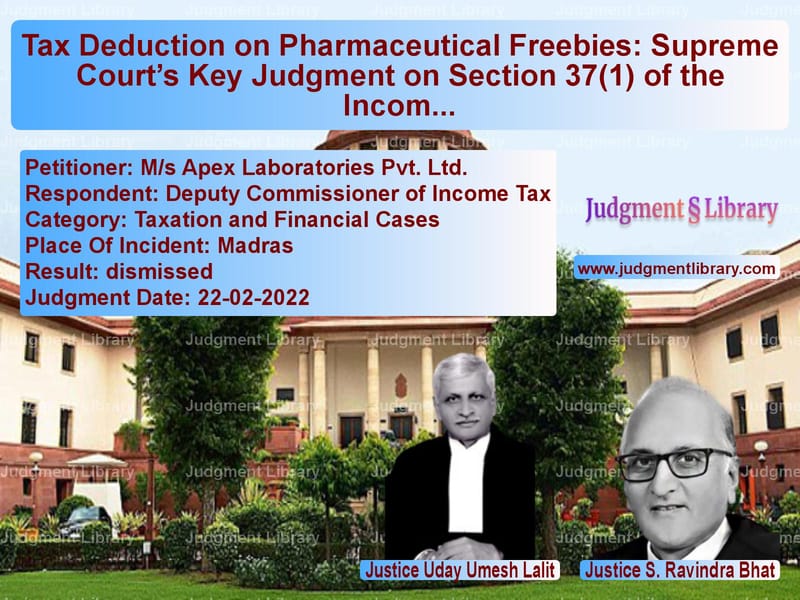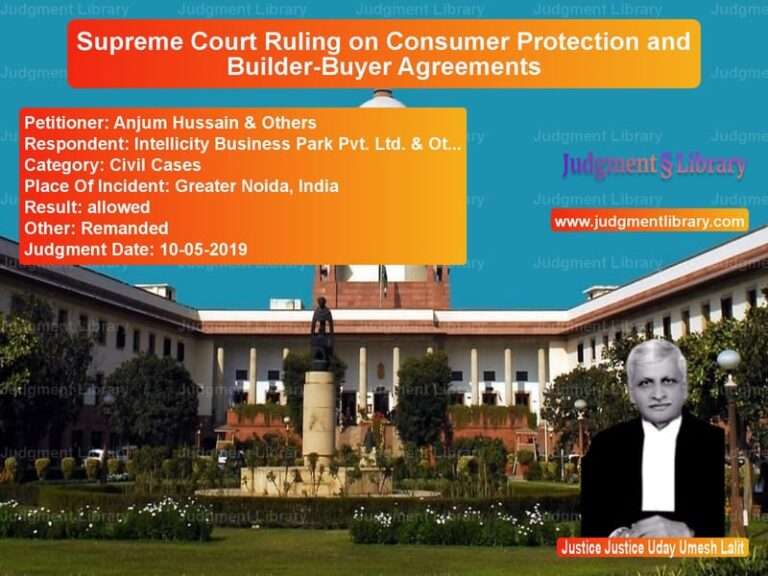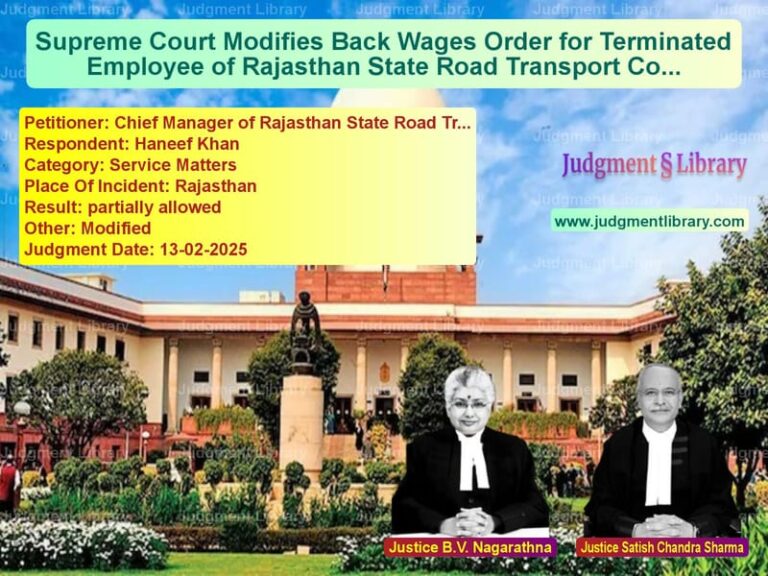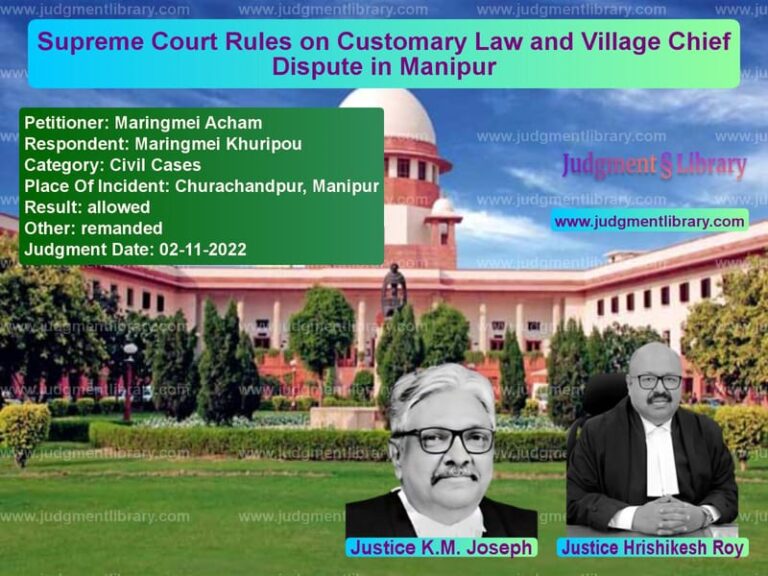Tax Deduction on Pharmaceutical Freebies: Supreme Court’s Key Judgment on Section 37(1) of the Income Tax Act
The case of M/s Apex Laboratories Pvt. Ltd. vs. Deputy Commissioner of Income Tax is a landmark judgment concerning the disallowance of tax deductions for expenses incurred by pharmaceutical companies in the form of ‘freebies’ given to medical practitioners. The Supreme Court examined whether such expenditures could be claimed as business expenses under Section 37(1) of the Income Tax Act, 1961, ultimately ruling that they were not deductible.
This decision has significant implications for pharmaceutical companies, medical practitioners, and tax authorities, reinforcing the principle that expenses incurred in violation of law or public policy cannot be claimed as legitimate business deductions.
Background of the Case
The case arose when Apex Laboratories Pvt. Ltd. claimed a tax deduction under Section 37(1) of the Income Tax Act for expenses amounting to ₹4,72,91,159, which were incurred in distributing various incentives to medical practitioners. These included:
- Hospitality expenses
- Conference fees
- Gold coins
- LCD TVs
- Fridges
- Laptops
The freebies were provided to medical practitioners to promote the pharmaceutical company’s health supplement ‘Zincovit’. However, the tax authorities disallowed the deduction, arguing that such expenditures were in violation of the Medical Council of India (MCI) regulations.
The matter went through several levels of litigation:
- The Commissioner of Income Tax (Appeals) upheld the tax department’s decision.
- The Income Tax Appellate Tribunal (ITAT) confirmed the order.
- The Madras High Court upheld the ITAT’s ruling.
- Apex Laboratories then appealed to the Supreme Court.
Legal Dispute Over Section 37(1) of the Income Tax Act
The primary issue before the Supreme Court was whether the expenses incurred by Apex Laboratories in distributing freebies to medical practitioners were allowable as business expenses under Section 37(1) of the Income Tax Act.
Relevant Legal Provisions
- Section 37(1) of the Income Tax Act: Allows deductions for business expenses unless they are for purposes that are an offense or prohibited by law.
- Medical Council of India (MCI) Regulations, 2002: Prohibit medical practitioners from accepting gifts, hospitality, and other incentives from pharmaceutical companies.
The tax authorities argued that since receiving such freebies was prohibited under MCI regulations, giving them should also be considered an act prohibited by law, making them ineligible for deduction under Section 37(1).
Arguments Before the Supreme Court
Apex Laboratories’ Arguments
The counsel for Apex Laboratories presented the following arguments:
- The MCI regulations only apply to medical practitioners and not to pharmaceutical companies, which means that the prohibition does not extend to them.
- The company was not engaged in any illegal activity, as there was no explicit law barring pharmaceutical companies from offering incentives.
- The Central Board of Direct Taxes (CBDT) circular dated 01.08.2012, which clarified that expenses on freebies were not deductible, could not be applied retrospectively.
- Similar tax deductions had been allowed in previous cases, such as in T.A. Quereshi vs. Commissioner of Income Tax, where heroin seized by authorities was considered a business loss.
Tax Department’s Arguments
The Additional Solicitor General representing the tax department argued:
- The prohibition on medical practitioners from accepting freebies implicitly extends to pharmaceutical companies, making their act of giving prohibited by law.
- Allowing tax deductions for such expenditures would encourage unethical practices and drive up the cost of medicines for consumers.
- The CBDT circular merely clarified the existing law, and its retrospective application was justified.
- The expenditure on freebies had no direct business purpose and was instead aimed at influencing medical practitioners to prescribe specific drugs, harming consumer interests.
Supreme Court’s Judgment
The Supreme Court upheld the Madras High Court’s decision, ruling in favor of the tax department. The key findings were:
- The Medical Council of India (MCI) regulations explicitly prohibit doctors from accepting freebies, making such transactions unlawful.
- By providing such incentives, pharmaceutical companies are actively participating in an unethical practice that the law seeks to prevent.
- Expenses incurred in violation of public policy cannot be allowed as legitimate business deductions under Section 37(1) of the Income Tax Act.
- The CBDT circular did not introduce a new restriction but merely clarified the existing law, making its retrospective application valid.
The Supreme Court observed:
“The pharmaceutical companies have misused a legislative gap to actively perpetuate the commission of an offense. Denying them tax deductions does not amount to penalizing them but rather prevents them from profiting from an illegal practice.”
Key Observations from the Judgment
- The judgment reinforces that public policy considerations play a role in tax law interpretations.
- Regulatory prohibitions on one party (medical practitioners) can extend to the other party (pharmaceutical companies) if the act is inherently unethical.
- Businesses cannot claim tax benefits for expenses that violate the law or encourage malpractice.
- The ruling aligns with international concerns about ethical pharmaceutical marketing practices.
Impact of the Judgment
This judgment has wide-ranging implications for the pharmaceutical industry, medical professionals, and tax authorities:
- Pharmaceutical Companies: They can no longer claim tax deductions for expenses related to gifts, hospitality, or incentives provided to doctors.
- Medical Practitioners: The ruling strengthens existing regulations against accepting gifts from pharmaceutical companies.
- Tax Authorities: The decision provides a clear precedent for rejecting similar claims in the future.
- Public Health: The ruling discourages unethical promotional practices that drive up healthcare costs for patients.
Conclusion
The Supreme Court’s decision in M/s Apex Laboratories Pvt. Ltd. vs. Deputy Commissioner of Income Tax sets an important precedent in tax law and business ethics. By disallowing tax deductions for pharmaceutical freebies, the ruling upholds the principles of ethical business practices and public policy.
This judgment sends a strong message that businesses cannot claim tax benefits for expenditures that violate legal or ethical norms, reinforcing accountability in corporate practices and safeguarding consumer interests.
Petitioner Name: M/s Apex Laboratories Pvt. Ltd..Respondent Name: Deputy Commissioner of Income Tax.Judgment By: Justice Uday Umesh Lalit, Justice S. Ravindra Bhat.Place Of Incident: Madras.Judgment Date: 22-02-2022.
Don’t miss out on the full details! Download the complete judgment in PDF format below and gain valuable insights instantly!
Download Judgment: ms-apex-laboratorie-vs-deputy-commissioner-supreme-court-of-india-judgment-dated-22-02-2022.pdf
Directly Download Judgment: Directly download this Judgment
See all petitions in Tax Evasion Cases
See all petitions in Income Tax Disputes
See all petitions in Judgment by Uday Umesh Lalit
See all petitions in Judgment by S Ravindra Bhat
See all petitions in dismissed
See all petitions in supreme court of India judgments February 2022
See all petitions in 2022 judgments
See all posts in Taxation and Financial Cases Category
See all allowed petitions in Taxation and Financial Cases Category
See all Dismissed petitions in Taxation and Financial Cases Category
See all partially allowed petitions in Taxation and Financial Cases Category







